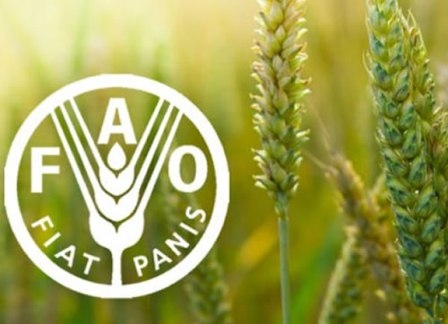World price indices FAO in March fell sharply

the Sharp decline in world food prices in March due to reduced demand as a result of the pandemic Covid -19 and falling oil prices.
Index of food prices FAO compared with February decreased by 4.3% to of 172.2 p. the Dynamics of prices at the present time is not determined by the supply and demand for goods, reduction of which impairs the economic Outlook.
Total for the month fell the FAO food price index sugar – just 19.1%. The reason was quarantined catering establishments and a decrease in demand from ethanol producers due to the sharp fall in oil prices.
the price Index for vegetable oils, the FAO fell by 12%, primarily due to lower prices for palm oil, and followed her on soy and rapeseed against the background of uncertainty with the impact of the pandemic Covid -19 on the vegetable oil markets and the sharp podeshevleniya oil.
the price Index for dairy products FAO fell to 3% due to lower prices and demand for dry skim and whole milk, and failures in the supply of dairy products associated with restrictive measures within the quarantine.
the price Index for cereals fell 1.9% to almost the level of March 2019 the Increase in imports to North Africa and minor limitations of Russian exports could not offset the impact of high global stocks and good prospects for the future harvest of grain. Corn prices fell under the pressure of large supplies and reduce demand from ethanol producers. However, rice prices increased for the third month in a row. India accumulates its reserves, while Vietnam plans to ban its export.
meat price Index fell by 0.6% due to lower prices of mutton and beef, the volume of trade which has decreased due to logistic problems. At the same time pork is more expensive in the backdrop of increasing global demand and restrictions on the movement of workers processing enterprises.
FAO Director-General qu Dun Yu called on the leaders of countries who last week took part in the G20 summit, to ensure the stability of the global system of food security. For this you need to avoid measures that restrict trade, transportation and delivery of products.
In comparison with the February forecast, FAO retained its estimate for world wheat production in 2020 at 763 million tonnes, while the estimate of world grain production in 2019 increased to 2,721 billion tons, which is 2.4% over 2018 In particular, wheat production is estimated at 763 million tons, rice – 512 million tons, feed grain – 1445 million tons.
the Forecast of consumption of grain in 2019/20 Mr increased to 2,722 million tonnes, which is 1.2% higher than last year's level. It is expected that the end of world grain stocks in 2019/20 will be reduced by 8 million tons, resulting in a ratio of residue to grain consumption will decrease to 30.7%, which is satisfactory level. The volume of world grain trade will grow by 2.3% to 420 million tons.
FAO expect that the logistical failures that disrupt the system of food supply will be temporary and will not affect world markets.


